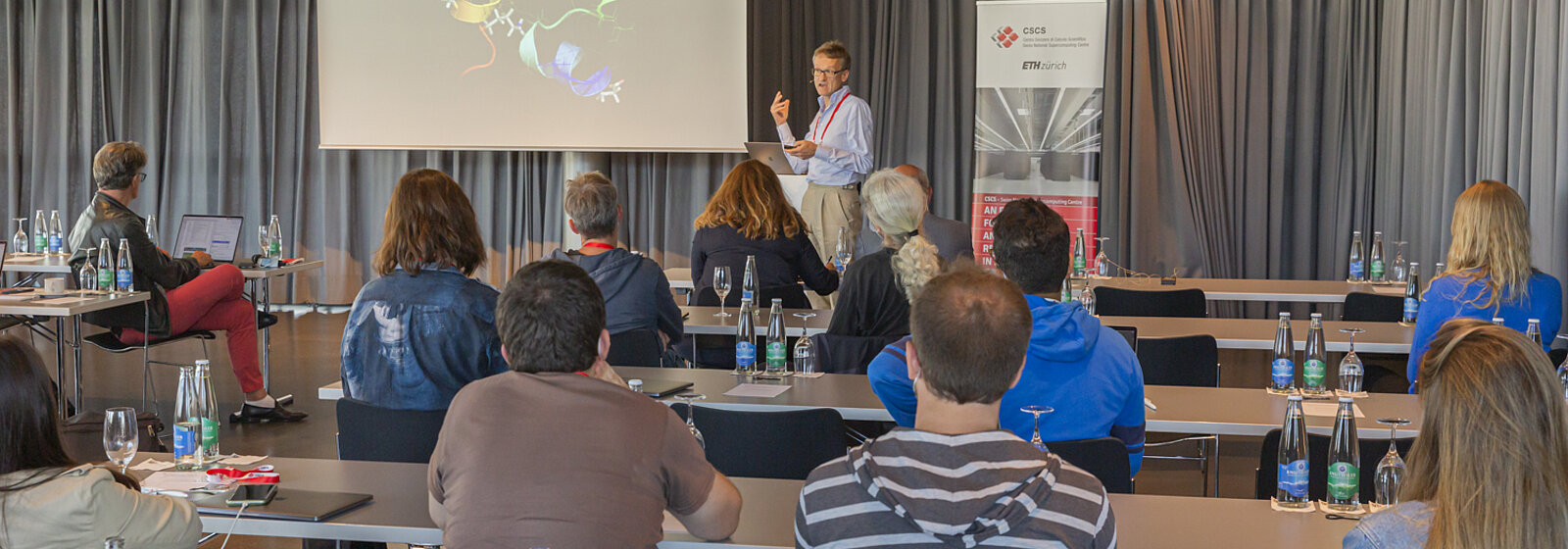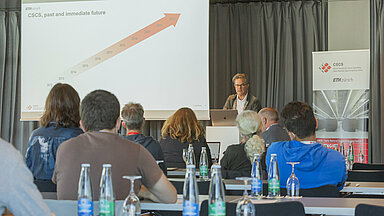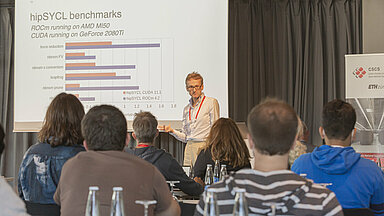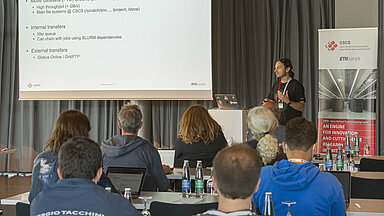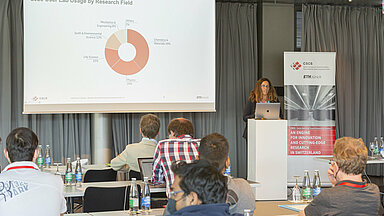September 15, 2021 - by Maria Grazia Giuffreda
After a short welcome and an outline of the agenda, the day has started with CSCS Director Thomas Schulthess presenting the CSCS Roadmap. In an interview and press release earlier this year the new Alps research infrastructure was announced, and the director took the opportunity to explain his vision and present the timeline. He assured users that the new infrastructure guarantees continuity of the HPC User Program while it will allow for new opportunities as well, emerging from modernized ways to provide services and resources.
Accelerators are nobody’s fault but physics
Special guest of the 2021 User Lab Day was Erik Lindahl, professor of Biophysics at Stockholm University and KTH, who gave an inspiring keynote presentation on “Strategies & lessons from scaling programs that are hard to scale. Molecular Dynamics on accelerators & exascale resources”. In an enthusiastic talk Lindahl showed how the supercomputing world is moving to modern hardware. Even though traditional CPUs are easy to use and attractive, the real power will come from accelerators, not only on the Swiss system but essentially everywhere in the world. “This is nobody’s fault but it is physics”.
Lindahl underlined that serious effort is necessary to improve software portability in order to make it fit for a variety of architectures and to minimize dependence on specific vendor solutions. He pointed out that now especially young scientists should think long-term and plan in terms of code portability because future is hard to foresee but will show new types of hardware that we need to adapt to. One current trend is the evolution of artificial intelligence (AI) and machine learning (ML) across many fields of science and the design of hardware specifically tuned to solve those problems efficiently. In turn this means that researchers need to formulate problems that fit modern hardware and consider AI and ML as strategies complementing traditional scientific computing that may help us solve problems that cannot be solved by any other means.
CSCS Service Portfolio & User Program
CSCS technical leader Guilherme Peretti-Pezzi started the afternoon session with a comprehensive overview of the current service portfolio at CSCS, mentioning existing services as well as new ones that CSCS user community may not yet be aware of. He has encouraged users to try out various solutions provided by CSCS and come back with feedback and ask for support wherever needed. To close the event, Maria Grazia Giuffreda, Associate Director at CSCS, reported on the User Lab in numbers, showing resource usage in 2020, ranked per scientific field, institution, and storage needs. Giuffreda also reminded CSCS users of the importance to acknowledge CSCS resources in peer-reviewed publications, this being an important metric to demonstrate that resources are allocated to high-quality, productive research projects. She finally alerted the community of deadlines for upcoming calls for proposals, and she gave some advice and suggestions of how to pass the technical assessment successfully.
See you back in Lucerne next year
CSCS staff and the keynote speaker finally took questions and comments and engaged in a discussion with the audience to clarify presentations and to address concerns. After 18 months of pandemic, it was important to be able to allow for at least some personal contact again. This certainly contributed to making the event a successful one. Hope to see you again next year, same time, same place, i.e. September 2022 in Lucerne.
